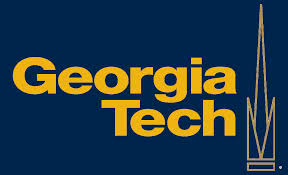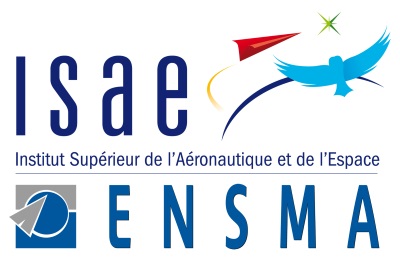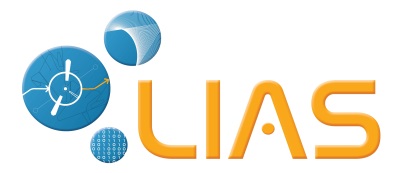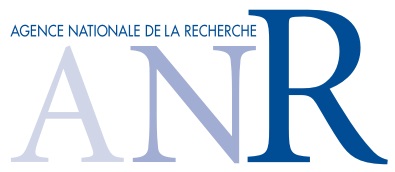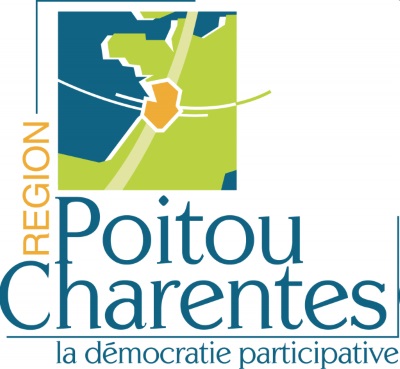Cyber Physical Systems mini-course
Georgia Institute of Technology, Atlanta, GA, USA
November 15, 16th, 2014
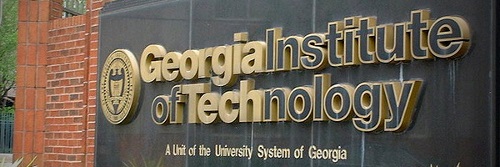
Presentation
A Cyber-Physical system is a system of collaborating computational elements controlling physical entities. Motivated by this definition and by several years of research, the instructors will offer a comprehensive view of what cyber-physical systems consist of today. Acknowledging the need for many distinct elements and disciplines to build cyber-physical systems, the instructors are distributed over a broad range of fundamental disciplines, including Human factors and cognition (Dr. Guy Boy), Software analysis and design (Dr. Pierre-Loïc Garoche), Control systems and autonomy (Dr. Eric Feron), Real-time embedded systems (Dr. Emmanuel Grolleau) and Cyber-Physical Systems design (Dr. Marilyn Wolf). Acknowledging the broad range of interpretation given to Cyber-Physical Systems, the team will primarily focus on safety-critical CPS. Over the course of two days, each instructor will present CPS concepts and tools from his perspective, linking it with the perspective of the other participants.
The lectures will allow plenty of interactions between the instructors and the workshop attendees.
Fees
None, but attendees are invited to register. This workshop is supported in part by the US National Science Foundation, by the Agence Nationale de la Recherche (France), by the Army Research Office (US), by Region Poitou-Charentes (France).
Expected Attendance
This mini-course is targeting graduate and undergraduate students, as well as researchers interested in the fields of critical cyber-physical systems (including, but not limited to, embedded systems, critical systems, control theory, human-centered design, optimization ...).
When
- November 15th, 9:30am – 5pm
- November 16th, 9am – 4pm
Registration
Detailed program
November 15th, 9:30am – 5pm
- 9:30-9:45 Opening talk
- 9:45-12:00 Software design languages and methods, addressing the software real-time aspects of CPS (by Dr. Emmanuel Grolleau)
- 13:30-15:45 Computational aspects of cyber-physical system design (by Dr. Marilyn Wolf)
- 16:00-17:15 From automation to tangible interactive objects: distributing cognitive functions among humans and systems - Part 1 (by Dr. Guy Boy)
November 16th, 9:00am – 4pm
- 9:00-10:00 From automation to tangible interactive objects: distributing cognitive functions among humans and systems - Part 2 (by Dr. Guy Boy)
- 10:15-12:30 Physical modelling and algorithmic perspective - Part 1 (Part 2) (by Dr. Eric Feron)
- 13:45-16:00 Formal verification of control software (by Dr. Pierre-Loïc Garoche)
Software design languages and methods, addressing the software real-time aspects of CPS (by Dr. Emmanuel Grolleau). Keywords: RTOS, AADL, software life-cycle, co-design, multitasking, programming, schedulability analysis.
A typical software specification for a control and command system is data flow and defines a set of functions and their dependencies, regardless of the underlying hardware. The hardware and software co-design is the next step towards implementing the system. For critical systems, e.g., in aeronautics, Architecture Description Languages are typically used to describe how the pieces of software (which is often multithreaded) interact, and how hardware resources are used to accomplish the functions. An important step is therefore to map the functions to software threads, threads to processing units, and communications to networks. Once this mapping, called the design, is made, the code, meant to be embedded on the system, is partly generated automatically using model to text transformation techniques. The underlying execution platform is usually (and hopefully) a Real-Time Operating System offering more or less standard sets of tools and concepts allowing to map easily the design to the code. This talk will be concluded by some classic temporal validation methods, and show how we can compute and account for the delays in a CPS.
Computational aspects of cyber-physical system design (by Dr. Marilyn Wolf).Keywords: CPS architecture, networked control system, distributed embedded system, design methodology.
We will discuss the design of cyber-physical systems from a computational perspective. We will discuss design methodologies for CPS including design requirements such as performance and reliability. We will discuss the structure and analysis of architectures for distributed cyber-physical systems.
From automation to tangible interactive objects: distributing cognitive functions among humans and systems (by Dr. Guy Boy)
Review of human-centered design approaches to human-system integration. Automation will no longer be an add-on; software supports the definition, implementation and operationalization of functions and structures of products from the beginning of the design process. Consequently, human-in-the-loop simulations are possible very early on during the design process and enable us to take into account human factors effectively in a sustainable way. The shift from single agent to multi-agent approaches leads to new definitions of software objects that need to become tangible. This revolution and challenge will be described, taking examples in the aerospace domain.
Physical modelling and algorithmic perspective (by Dr. Eric Feron)
We will discuss cyber-physical systems from a physical modelling and algorithmic perspective. All cyber-physical systems rely upon some models of the physical substrate, and algorithms that receive information from, and act upon, them. We will cover a few examples of such systems, focusing on different levels of abstraction for both physical and algorithmic layers, according to the desired level of resolution and performance. We will also cover the need for some of these systems to pass certification requirements, and discuss the various methods available to provide evidence supporting engineering claims about the system.
Formal verification of control software (by Dr. Pierre-Loïc Garoche)
- formal methods to analyze critical software: model checking, abstract interpretation, deductive methods
- specificities of control software: control laws, safety architecture
- model level analysis: synchronous languages, model checking algorithms, invariant computations
- source level analysis
- industrial experiences
- computation of sound numerical invariants: the floating point issue
Where
Georgia Institute of Technology, Montgomery Knight building, room 442. The beautiful Georgia Tech campus will serve as the venue for this course. Georgia Tech, located in Atlanta, Georgia, is surrounded by numerous hotels and restaurants where participants will find lodging and food.
Who
Dr. Guy Boy (Florida Institute of Technology and NASA), is University Professor and Director of the Human-Centered Design Institute and Ph.D. & Master’s Programs at the Florida Institute of Technology, IPA Chief Scientist for Human-Centered Design at NASA Kennedy Space Center and a Senior Research Scientist at the Florida Institute for Human and Machine Cognition (IHMC). He is member of the Scientific Committee of the SESAR program (Single European Sky for Air Traffic Management Research – “European NextGen”). Fellow of the Air and Space Academy, he is a senior member of the ACM (Executive Vice-Chair of ACM-SIGCHI from 1995 to 1999) and INCOSE.
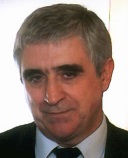
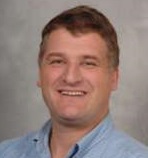
Dr. Eric Feron (Decision and Control Lab, Georgia Institute of Technology) is the Dutton-Ducoffe Professor of Aerospace Software Engineering at Georgia Tech. Feron is building upon 25 years of research experience with control systems, their software implementation and their implementation on physical artifacts to develop rigorous methodologies for the development of CPS.
Pierre-Loïc Garoche (ONERA, Office National d’Etudes et Recherches Aérospatiales) is a senior researcher at Office National d'Etudes et Recherches Aerospatiales (ONERA), located in Toulouse, France. He is a graduate from Ecole Normale Supérieure de Cachan, and holds a doctorate in Computer Science from the University of Toulouse. His interests include all aspects of software analysis. His core interests include leveraging model-checking methods to facilitate abstract interpretation and vice-versa, especially in command-control software. Recently, he has devoted much interest in control systems, for the purpose of helping control-command software analysis.
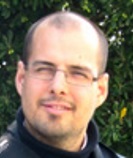
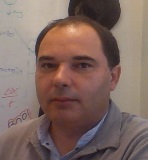
Emmanuel Grolleau (LIAS, ISAE-ENSMA, Institut Supérieur de l’Aéronautique et de l’Espace – Ecole Nationale Supérieure de Mécanique et d’Aérotechnique) is professor at ISAE-ENSMA, co-head of the LIAS Lab, Poitiers, France. He is teaching real-time systems programming on Real-Time Operating Systems, embedded systems software design, and is a researcher in temporal validation and real-time scheduling. He co-authored two books about software specification/design/programming for critical embedded systems, and is applying model-based engineering to temporal validation.
Marilyn Wolf (Embedded Systems Lab, Georgia Institute of Technology) is Farmer Distinguished Chair and Georgia Research Alliance Eminent Scholar at the Georgia Institute of Technology. She received her BS, MS, and PhD in electrical engineering from Stanford University in 1980, 1981, and 1984, respectively. She was with AT&T Bell Laboratories from 1984 to 1989. She was on the faculty of Princeton University from 1989 to 2007. Her research interests include cyber-physical systems, embedded computing, embedded video and computer vision, and VLSI systems. She has received the ASEE Terman Award and IEEE Circuits and Systems Society Education Award. She is a Fellow of the IEEE and ACM and an IEEE Computer Society Golden Core member.
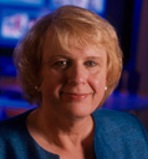
Contact
For questions concerning this mini-course, contact Eric Feron: feron(att)gatech(dott)edu.
